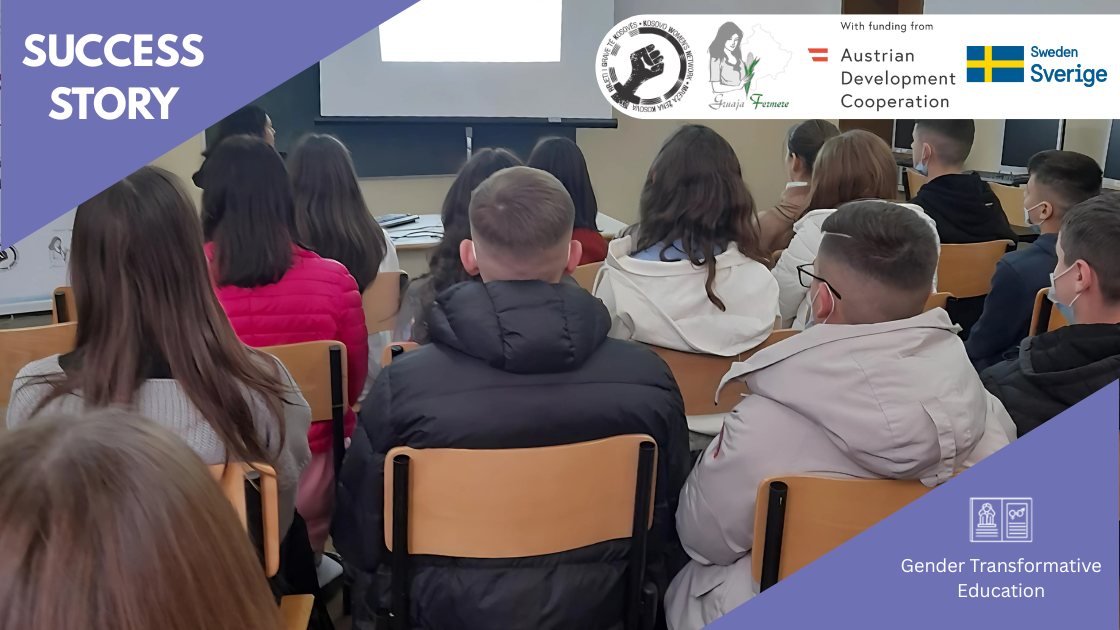In Kosovo, sexual education remains insufficiently addressed, shaped by tradition and social norms. Within schools, the subject is covered only minimally: textbooks provide limited information that is neither comprehensive nor tailored to students’ age and development. Many young people hesitate to approach teachers and instead rely on social media for information about sexual and reproductive health.
The NGO Gruaja Fermere, based in the municipality of Rahovec, stepped in to fill this gap by empowering young people with the knowledge needed to safeguard their health and well-being. Believing that students deserve more than whispered rumours, the organisation sought to provide accurate, age-appropriate guidance.
Their initiative began with a cooperation agreement with the Municipal Directorate of Education. Six school principals, together with a psychologist and two sociologists, joined forces to review textbook shortcomings and submit a request for sexual education to be introduced as a subject in schools, taught at least once a week. Soon after, forty teachers from biology, civic education, language, arts, and physical education took part in a specialized training on quality, gender-sensitive teaching. They left not only with certificates but also with a new responsibility: to bring equality and respect into their daily classrooms.
The classrooms soon followed. Ten sessions across Rahovec schools reached 263 students, 140 girls and 123 boys aged 12 to 17. One hundred of them received focused guidance on accessing health services and understanding their rights. The sessions covered topics such as reproductive health, the role of family and community, sexually transmitted diseases, and unplanned pregnancy. For many students, it was the first time these topics connected directly to their own futures. Lecturers also encouraged students to promote these conversations and practices within their families and communities. Awareness began to shift into action as students carried healthier values back to their homes and peers.
The story of Gruaja Fermere shows that change begins when silence is broken. By combining teacher training, student engagement, and institutional cooperation, they laid the foundation for lasting progress. Teachers gained the confidence to integrate gender equality into their classrooms, students gained essential knowledge to protect their health and well-being, and school leaders came together to equip Rahovec students for a healthier, safer future.
Although the request to make sexual education a standalone subject was later rejected, further progress has followed since the initiative ended. Sexual education is still not a separate subject but has been integrated into Biology as a dedicated chapter, and teachers trained by Gruaja Fermere reportedly still use the materials they received to deliver lessons. Gruaja Fermere tells KWN that the need for sexual education to be more comprehensively addressed in schools – or, if not approved, to be organised outside of schools – has been raised by community members also within other projects. “Based on the situation on the ground, I think parents need to be made aware of the importance of advocating for the Ministry of Education to introduce sexual education as a school subject,” says Muradije Shehu, Gruaja Fermere’s Project Coordinator. “The teacher trainings clearly showed that children have a real need for this knowledge.”
Gruaja Fermere’s initiative “Sex education adapted to age and development” was carried out with support from the Kosovo Women’s Network via the Kosovo Women’s Fund, with funding from the Austrian Development Agency and the Swedish Development Agency, in the amount of €3,705, from October 2021 to January 2022. The initiative contributed directly to KWN’s Programme “Gender Transformative Education.”







